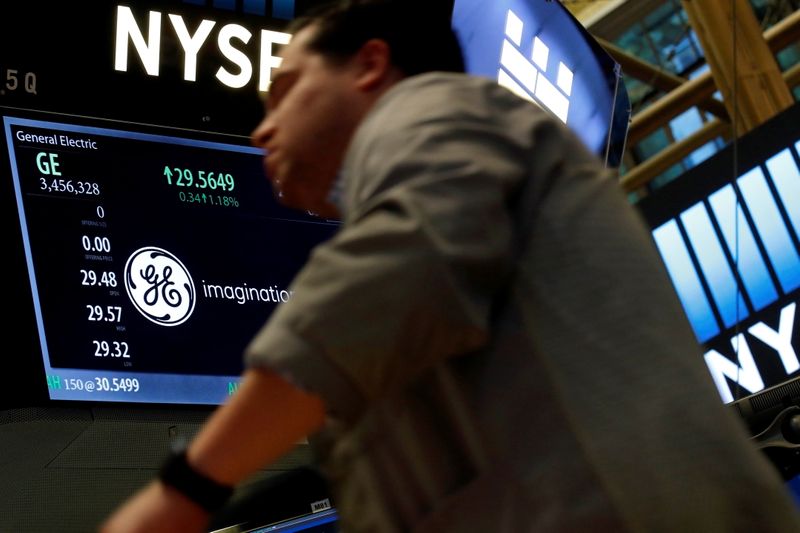
© Reuters
By Geoffrey Smith
Investing.com — Payrolls processor ADP presents its first report on private-sector hiring after a methodology makeover. Eurozone inflation hits a new record high as Russia turns off the gas taps on Nord Stream. Snap is reportedly planning big job cuts and HP and Best Buy earnings paint a bleak picture for consumer electronics. China’s manufacturing sector is still shrinking, and oil prices slump as stockpiles rise and reports of an imminent deal to restore Iranian exports circulate. Here’s what you need to know in financial markets on Wednesday, 31st August.
1. ADP payrolls are back
The ADP private payrolls survey is back, after a couple of months in which the payrolls processor worked to iron out some of the quirks in its methodology which had undermined its usefulness as an advance guide to the official labor market report.
The market may not want to trade much on the first set of numbers under the new methodology but the consensus forecast of a relatively modest 300,000 gain in nonfarm payrolls on Friday is already at risk of an upside surprise. The monthly Job Openings survey on Tuesday showed vacancies still abundant, while jobless claims numbers (due Thursday) have also stayed lower than many expected a month or two ago.
Speeches from Federal Reserve presidents Loretta Mester, Lorie Logan and Raphael Bostic also punctuate the economic calendar.
2. Eurozone inflation hits new record high as Russia turns off the taps
Inflation in the Eurozone rose to a new record high of 9.1% in August, again overshooting expectations in a repeat of what has been a depressing pattern this year.
The numbers add to pressure on the European Central Bank for a big rate hike at next week’s meeting. German central bank chief Joachim Nagel called in a speech for a “decisive” reaction from the ECB to stop inflation expectations de-anchoring. However, the bank’s dovish chief economist, Philip Lane, said on Tuesday that he favored a more gradual series of smaller steps.
The euro was unable to hold above $1.000, falling 0.2% to 0.9990, pressured by Russia confirming its intention to stop gas supplies through the Nord Stream pipeline for three days of “maintenance”. Analysts fear a longer, politically-driven shutdown to intensify the economic squeeze on the continent as Russia struggles with its own problems on the battlefield in southern Ukraine.
3. Stocks set to open mixed; Snap job cuts in focus
U.S. stock markets are set to open mixed later, struggling to break a three-day losing streak driven by fears of higher interest rates.
By 06:15 ET (10:15 GMT), Dow Jones futures were down 44 points, or 0.1%, while S&P 500 futures were up 0.2% and Nasdaq 100 futures were up 0.5%.
Stocks likely to be in focus later include Snap (NYSE:SNAP), which is reported to be planning big job cuts, and HP (NYSE:HPQ), which is down over 6% premarket after giving a disappointing outlook for the PC sector. Weak spending on consumer electronics also hit Best Buy’s (NYSE:BBY) earnings, although its numbers were in line with forecasts. Crowdstrike (NASDAQ:CRWD) and Hewlett Packard Enterprise (NYSE:HPE) by contrast continued the relatively strong run of reports from the business software sector.
JPMorgan (NYSE:JPM) may also get some attention after news that its German offices were raided in a wide-reaching probe into tax evasion by banks lasting years.
Brown-Forman leads a thin slate of earnings.
4. Chinese manufacturing still in contraction
China’s manufacturing sector spent another month in contraction in August, according to the official Purchasing Managers Index published overnight.
The official PMI, which tracks the activities mainly of larger, state-owned enterprises, rose by more than expected but, at 49.4, was still below the key 50 line that signifies growth. The composite PMI, at 51.7, was consistent with moderate expansion, but came in lower than estimates due to a fall in the services PMI.
The offshore yuan, which sank to a two-year low on Monday amid ongoing unease at the weakness caused by Covid lockdowns and the deleveraging of the real estate sector, strengthened by some 0.2%.
5. Oil slumps on stock build, Iran reports
Crude oil prices fell sharply after reports said Washington and Tehran had reached an agreement to revive the UN-backed deal limiting its nuclear activities.
By 06:30 ET, U.S. crude futures were down 3.3% at $88.62 a barrel, while Brent futures were down 3.2% at $94.75 a barrel.
A deal between Iran and the West would lead to the lifting of sanctions on Iran and see the release of over 1 million barrels a day of supply into the world market.
The Chinese PMI data and a surprise increase in U.S. crude stocks, measured by the American Petroleum Institute, added to the downward momentum. The U.S. government’s inventory data are due at 10:30 ET as usual.
Source: Investing.com





























